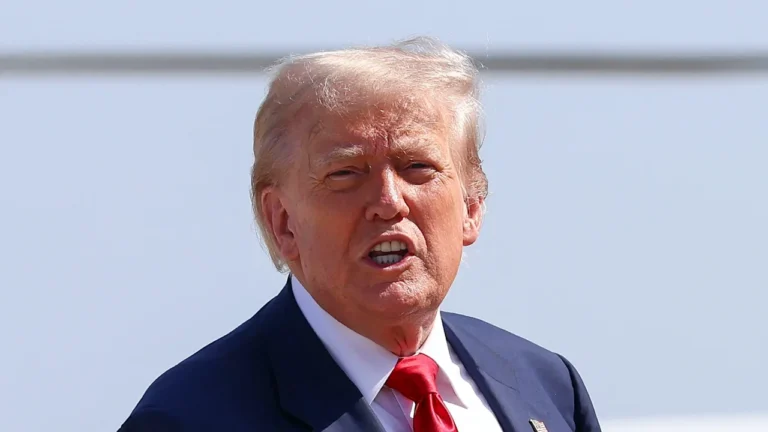
Across industries, caution is rising. CEOs are slowing down major strategies—from hiring to investment—as uncertainty grows. The Business Roundtable’s CEO Outlook Index recently dropped to its lowest level since 2020, reflecting widespread hesitation amid global volatility.
It’s understandable. When the path ahead is unclear, the instinct is to pause. To wait.
Companies, institutions, governments, and philanthropists alike are reassessing their strategies as volatility becomes the new norm. Most leaders are focused on the challenges closest to home—in their industries, portfolios, and internal priorities. But the reality is: We don’t live or work in silos. We live in a global market. And across every corner of that market, the signals are clear: growing caution, slower decision making, and heightened risk awareness.
At UNICEF USA, where I lead private sector fundraising, we are squarely in the middle of that tension. We’re seeing these trends play out in real time—in boardrooms, in proposal reviews, in budget meetings. As we work to meet escalating needs for children around the world, there is a slowdown. But this is also a moment that demands urgency and trust. It also demands innovation. And like many of our partners, we’re rethinking what it takes to deliver meaningful, sustained impact in a rapidly shifting landscape.
Hesitation is understandable—but costly
We hear it from donors and partners all the time: “We’re recalibrating.” The global environment is unpredictable. Economic headwinds and geopolitical unrest have created a pause in decision making across industries—and philanthropy is no exception. Even committed supporters are questioning whether now is the time to lean in or wait for more clarity.
But here’s the problem: While strategy resets may make sense at the institutional level, the needs on the ground aren’t pausing. For a child living through conflict in Sudan, a mother navigating floods in Bangladesh, or a newborn in Guatemala in need of basic care, delays have consequences. The cost of hesitation is measured in lives, in futures, in lost momentum.
At UNICEF, we can’t stop in the face of uncertainty, and we don’t. We double down. It’s how we work. Because every delay risks compounding the damage.
We need to be clear-eyed about what happens if global investment slows. Weakening humanitarian and development funding doesn’t just affect the children we serve—it reverberates across markets and industries. Rising conflict, destabilized supply chains, currency volatility, and workforce readiness aren’t distant risks. They’re business realities.
There is a moral imperative to act. But there is also a business imperative. If we want a more stable, equitable future—for everyone—we must invest in the systems that create it.
Slowing our response now won’t bring stability. It will deepen inequality and delay recovery.
Collaborate to meet the moment
One thing is clear: Delivering impact at scale requires collaboration. We’ve always worked across governments, corporations, civil society, and communities—but in today’s environment, the strength of those partnerships matters more than ever. Trust and alignment aren’t soft values; they are strategic necessities.
We’re seeing powerful examples of what this can look like. Corporations that are embracing flexibility. Donors who are willing to have hard, honest conversations. Foundation leaders moving toward sustained, trust-based relationships that prioritize long-term outcomes over short-term metrics.
Through support of the Eli Lilly and Company Foundation (Lilly Foundation), we will be able to not only deliver results, but accelerate change. Its recent commitment to UNICEF USA is focused on delivering and strengthening maternal, newborn, child, and adolescent health in low- and middle-income countries by expanding prevention and care of noncommunicable diseases. We work to build trust with regular progress updates that demonstrate tangible results on this shared objective.
Innovation with real stakes
Innovation means different things to different people. At UNICEF, it’s not about novelty—it’s about meeting the moment by improving how we work and how we deliver. In a world of rising complexity, innovation is how we adapt—operationally, strategically, and systemically.
Whether it’s working with OpenAI to use generative AI to improve education outcomes, to pilot financing models to increase climate resilience, or scaling health solutions across fragile systems, we’re focused on innovations that improve delivery and drive measurable outcomes. Not pilot projects for their own sake, but solutions that meet urgent needs and adapt to changing realities.
Progress is not theoretical—it’s measurable. Since 1990, the number of children under five dying from preventable causes has dropped by more than 60%. That’s proof that when the world acts with urgency and coordination, we can change the trajectory for an entire generation.
Progress is not theoretical—it’s also human. Imagine a five-year-old child you love. Maybe they’re starting school, asking endless questions, or learning to swim. Now imagine that same child—feverish and weak from something easily treatable. You’re holding them in your arms to comfort them. You know what they need. The medicine exists. The clean water exists. But you can’t get it.
That’s the crushing reality facing millions of families every day. Not because we lack simple, affordable, and preventable solutions—like vaccines, treatments for diarrhea and pneumonia, or ready-to-use therapeutic food for severe acute malnutrition—but because access breaks down when systems are underfunded, fractured, or forgotten.
What’s at stake for all of us
This is a moment to lead with urgency. To move with clarity, not caution.
Because the choices we make today—across philanthropy, business, and policy—will determine what kind of world we live and work in tomorrow.
Michele Walsh is executive vice president and chief philanthropy officer at UNICEF USA.


